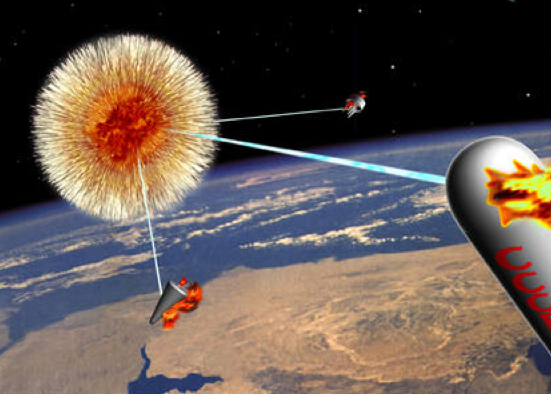On this day in 1985, prime minister of Canada Brian Mulroney turned down U.S. president Ronald Reagan’s invitation to join the Strategic Defense Initiative (SDI), nicknamed the “Star Wars” program. (1)
Canada’s own policies and priorities do not warrant a government-to-government effort in support of SDI research” where “the parameters are beyond our control and the government of Canada does not call the shots” said Mulroney. (1)
By February, 1987, the U.S. had put all major SDI decisions on hold because the administration was internally divided about testing the nuclear missile shield in space and early deployment”, of which Reagan was strongly in favor. Once the Cold War ended and the Soviet Union dissolved in 1991, political support for the SDI evaporated. Two years later, the nearly US$30-billion research program was scrapped. (1)
Canada is, and has always been, a non-nuclear country. We had a brief flirtation with nuclear weapons in the 1960s, in the early days of the Pearson Liberal government, but determined grassroots opposition put an end to that. Pierre Elliott Trudeau, then a private citizen, famously called Pearson the “defrocked Prince of Peace” after the latter said, in 1963, that he would allow nuclear-armed missiles on Canadian soil. (2)
Today, the major question is whether current Prime Minister Justin Trudeau, the son of Pierre Elliot Trudeau has the political will to renounce the use of nuclear weapons and endorseTreaty on the Prohibition of Nuclear Weapons. In fact, Pierre Trudeau’s son does not seem to share his father’s passion for peace and disarmament. Since 2016, he has lined up with most of its NATO allies, and against much of the rest of the world, in boycotting the entire Prohibition treaty process.
The treaty of Prohibition of Nuclear Weapons prohibits the development, testing, production, stockpiling, stationing, transfer, use and threat of use of nuclear weapons, as well as assistance and encouragement to the prohibited activities. For Canada joining the treaty, means that it provides for a time-bound framework for negotiations leading to irreversible elimination of nuclear weapons.






